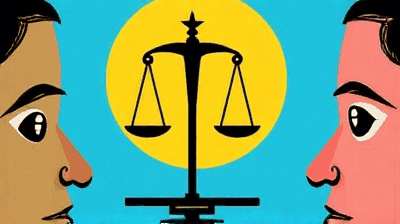
Have you ever looked at someone else's mistake and immediately thought, "They must be incompetent"? Meanwhile, when you make the same mistake, do you find yourself saying, "I just had a bad day" or "It was an unavoidable situation"? This discrepancy in how we evaluate ourselves versus others is a widely studied phenomenon in psychology known as the fundamental attribution error (FAE). Understanding this bias is essential because it influences our perceptions, interactions, and relationships.
Understanding the Fundamental Attribution Error
Definition and Origins
The fundamental attribution error refers to the tendency for individuals to overemphasize dispositional or personality-based explanations for the behavior of others while downplaying situational factors. In simpler terms, we tend to believe that people act the way they do because of who they are, rather than considering the context in which their behavior occurs.
This concept was first introduced by social psychologists in the 1970s, notably by Edward E. Jones and Victor A. Harris in their 1967 study on attribution processes. In their research, they found that participants who read about a student's essay on Castro tended to attribute the essay's pro-Castro stance to the student's personal beliefs, even when they knew the student was assigned to take that position. This bias in interpretation highlighted the inclination to overlook situational influences when evaluating the actions of others.
Key Characteristics of the Fundamental Attribution Error
Overlooking Situational Factors: The FAE showcases our tendency to ignore or downplay external influences affecting behavior. For instance, when observing someone fail to meet a deadline, we might attribute it to laziness rather than the possibility of unforeseen circumstances that impacted their ability to deliver on time.
Dispositional Emphasis: This error often leads us to make judgments based on personality traits instead of considering the unique situation at hand. We may see someone as irresponsible rather than acknowledging the pressures they may have been facing.
Self-Serving Bias: The fundamental attribution error is intertwined with the self-serving bias, which refers to our tendency to attribute our successes to internal factors (e.g., talent, hard work) while attributing failures to external circumstances (e.g., bad luck, lack of resources). This discrepancy highlights the inconsistency in our evaluations of ourselves and others.
Everyday Examples of the Fundamental Attribution Error
The FAE can be observed in numerous instances of daily life:
Traffic Situations: When another driver cuts us off in traffic, we may perceive them as reckless or inconsiderate. However, if we find ourselves in the same position, we are likely to justify our actions by citing the stressful day we had or the urgent need to get somewhere.
Workplace Behavior: In professional settings, a colleague who misses a meeting might be viewed as disorganized or unprofessional. Conversely, if we miss a meeting, we may emphasize the unexpected emergency that arose, framing our absence in a more sympathetic light.
Academic Performance: Students may attribute their peers’ poor grades to a lack of intelligence, yet when they receive a low mark themselves, they might rationalize it as a result of an unfair test or insufficient preparation time.
Psychological Underpinnings of the Fundamental Attribution Error

Cognitive Processes
Cognitive psychology provides valuable insights into the mechanisms behind the fundamental attribution error:
Attention and Awareness: Individuals often focus on the person involved in a situation rather than the context. This perspective captures our attention and can lead to dispositional explanations because situational factors may remain in the background and be overlooked.
Cognitive Load: When faced with cognitive overload or time constraints, people tend to rely on heuristics—mental shortcuts that simplify decision-making. Attributing behavior to inherent traits is a cognitive shortcut that reduces the complexity of understanding actions.
Social Identity Theory: According to social identity theory, people derive a part of their identity from the groups they belong to. When evaluating in-group members vs. out-group members, we are more likely to judge out-group behavior harshly and attribute it to their character flaws, further underscoring the FAE.
Emotional Influences
Emotions also play a critical role in the fundamental attribution error:
Empathy Deficit: When observing others, we often lack the empathetic understanding that can help us appreciate the situational factors influencing their behavior. The absence of empathy makes it easier to assign blame based on perceived personality traits.
Resentment and Jealousy: Negative emotions, such as resentment or jealousy, can cloud our judgments. When we feel threatened or envious of someone else's success, we are more inclined to see them as undeserving and attribute their achievements to luck or manipulation.
Stereotyping and Bias: Social stereotypes can exacerbate the fundamental attribution error. When we unconsciously apply stereotypes to individuals, we are more likely to overlook situational factors, leading to flawed judgments that reinforce biases.
Implications of the Fundamental Attribution Error
Personal Relationships
The fundamental attribution error can have profound effects on interpersonal relationships:
Miscommunication: Friends, colleagues, and family members may engage in conflicts resulting from misunderstandings of each other's behaviors. When one party perceives the other’s actions through the lens of dispositional attributions, it can lead to resentment and negative feelings.
Conflict Escalation: In relationships, if one partner believes the other is consistently selfish or uncaring—which may stem from momentary situations—they may feel justified in their frustration. Such judgments can escalate tensions and create a chasm between individuals.
Lack of Forgiveness: The FAE can hinder our ability to forgive others' missteps. When we judge others by their perceived character rather than their circumstances, we might be less inclined to extend grace and understanding, ultimately damaging relationships.
Workplace Dynamics
In professional contexts, the fundamental attribution error can contribute to workplace challenges:
Performance Evaluations: Managers may misinterpret employees’ performance through the lens of the FAE. When assessing team dynamics, leaders might attribute failures to poor individual effort instead of considering external pressures such as inadequate resources or conflicting priorities.
Team Cohesion: Team members who perceive their colleagues through the FAE may develop mistrust and resentment. This environment can stifle collaboration, creativity, and overall job satisfaction.
Recruitment Bias: Employers who rely heavily on dispositional attributions during hiring or promotions may inadvertently overlook qualified candidates who faced situational challenges or obstacles in their careers.
Social Issues
The fundamental attribution error also has broader implications for society:
Systematic Inequality: Group-based attributions can perpetuate systemic inequality. For instance, attributing poverty to individual failures rather than societal factors ignores the complex realities that many individuals face and can lead to stigmatization of marginalized groups.
Public Policy: Policymakers who make dispositional attributions about certain populations may design ineffective programs that fail to address underlying issues. For example, viewing substance abuse solely as a moral failing rather than a health crisis can affect funding, resources, and support for affected individuals.
Media Representation: News media may frame individuals’ actions through the FAE, particularly when reporting on crime or social issues. This framing can influence public perception and reinforce stereotypes, contributing to cyclical prejudice.
Acknowledging and Mitigating the Fundamental Attribution Error

Self-Reflection and Awareness
Being mindful of our judgments is crucial in combating the fundamental attribution error:
Practice Self-awareness: Evaluate your initial thoughts when interpreting someone else’s behavior. Ask yourself whether you might be overlooking situational factors or relying too heavily on dispositional traits.
Recognize Patterns: Maintain a journal to track your judgments about others' behaviors. Over time, this practice can help you identify when you are engaging in the FAE and refine your thought processes.
Challenge Assumptions: Before forming conclusions about others, practice asking questions that encourage exploration of their circumstances. Consider not only the actions but also the context in which those actions occurred.
Encouraging Empathy
Promoting empathy is essential to reducing the impact of the fundamental attribution error:
Active Listening: When communicating with others, engage in active listening to understand their perspective. Listen to their explanations and experiences, which can foster a greater understanding of their situation.
Shared Experiences: Reflect on your own vulnerabilities and mistakes. Sharing these experiences with others can help build connections and foster empathy, reducing the likelihood of harsh judgments.
Encourage Open Dialogue: Establish an environment in which open dialogue about decision-making and actions thrives. This can promote understanding and reduce the tendency to jump to conclusions.
Improving Decision-Making in Organizations
Organizations can take proactive steps to mitigate the impact of the fundamental attribution error on their environment:
Training and Development: Offer training programs focused on empathy, collaboration, and diverse perspectives. Emphasizing these skills can help employees recognize and confront their biases.
Constructive Feedback: Managers should provide constructive feedback rooted in understanding situational context. Feedback should focus on improvement while acknowledging external factors that may have influenced performance.
Diverse Teams: Promote diversity within teams to offer a broader range of perspectives. Diverse backgrounds and experiences can challenge normative beliefs and enhance overall decision-making.
Case Studies of the Fundamental Attribution Error
1. Academic Settings
Research on academic performance demonstrates strong FAE tendencies among educators. Teachers may attribute a student’s poor performance to a lack of intelligence or effort while overlooking external factors, such as family issues or socioeconomic constraints.
- Intervention Strategies: Programs that promote awareness of individual student circumstances have shown success in improving academic outcomes. Teachers who are educated on the situational factors affecting students are better equipped to provide support and guidance.
2. Public Health Campaigns
Public health campaigns often encounter challenges related to the fundamental attribution error. For instance, campaigns addressing health-related behaviors may be met with public resistance when the focus is on individual responsibility.
- Reframing Messages: Successful campaigns that emphasize social and environmental influences, such as access to healthcare or nutritious food, have been more effective than those that solely blame individuals for unhealthy choices. This reframing reduces stigma and promotes a broader understanding of the complexities of health-related decisions.
3. Technology and Social Media
Social media has magnified the impact of the fundamental attribution error. Online interactions often lead to rapid judgments based on limited information about others.
- Building Digital Empathy: Social media platforms that promote empathy, such as initiatives encouraging users to share their stories and challenges, can help combat the FAE. When individuals are exposed to the realities of others’ lives, it can foster greater understanding and reduce harsh judgments.
Conclusion

The fundamental attribution error plays a significant role in shaping our perceptions of ourselves and others, influencing everything from personal relationships to societal dynamics. By understanding this psychological phenomenon, we can work toward more empathetic and informed decision-making.
Recognizing the tendency to judge others harshly while applying leniency to ourselves can guide us towards greater self-awareness, empathy, and openness. Through mindful practices, open dialogues, and a commitment to challenging assumptions, we can mitigate the effects of the fundamental attribution error.
As we strive for more compassionate interactions, both personally and professionally, it is essential to embrace the complexity of human behavior. By considering the interplay of dispositional and situational factors, we can better navigate our relationships and contribute to a more understanding and supportive society.








